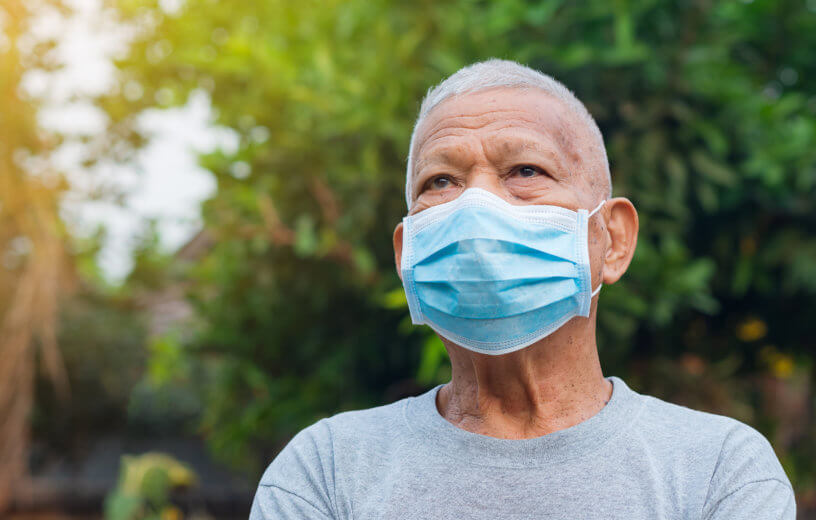ATLANTA — A new survey finds that older men worry less than others about the COVID-19 pandemic, despite being at a higher risk for contracting the disease. According to the CDC, the fatality risk for coronavirus increases with age, and data from the last few months shows that men are more at risk than women.
The survey, conducted by psychology researchers from Georgia State University, aims to understand how the response to the pandemic differs by age and gender.
The authors of the study note that “worry” is one of the key factors for determining whether or not someone will make behavioral changes to protect themselves. The more someone worries, the more likely they are to adopt preventative health activities like eating healthy, exercising, and getting screened in a timely manner.
“Not only do older adults exhibit less negative emotions in their daily lives, they also exhibit less worry and fewer PTSD symptoms following natural disasters and terrorist attacks,” says senior author Sarah Barber, a gerontology and psychology researcher at Georgia State University, in a university release.
Since older people tend to worry less, Barber wanted to see if they have a different response to the COVID-19 pandemic than others. She administered an online survey in the U.S. between March 23-31 — right at the start of the lockdown. Her team surveyed a group of 146 younger adults aged 18-35 and 156 older adults aged 65-81.
The questionnaire asks questions like, “Do you think people are overreacting to COVID-19?” and “Does COVID-19 pose a similar risk to the flu?” to gauge how people evaluate the risk the virus poses. To assess how people gauge their risk of exposure, the survey also asks, “Are you worried that you or one of your family members will catch the virus?”
There are also several questions that ask about big changes the pandemic may cause like economic impact, whether or not hospitals will be overwhelmed, and if the pandemic will cause stores to run out of stock of essential goods. Finally, respondents are asked if they’d been engaging in practices to reduce their infection risk like washing their hands more frequently, wearing face coverings, practicing social distancing, observing a quarantine period, or changing their diet.
Most survey participants responded that they were at least moderately concerned about the pandemic. This worry has caused the majority of people (>80%) to take protective measures like taking extra time to keep clean and avoiding public places. About 60% of participants report that they have stopped socializing to reduce the risk of spreading the disease.
Researchers say the more someone worries about the risks associated with COVID-19, the more likely they are to adopt behavior changes to reduce their personal risk. Since older men under-evaluate their COVID-19 risk, they’re the least likely to change their behaviors.
The survey also finds that older men are less likely to wear face masks and stop touching their faces. They’re also not stocking up on emergency supplies of food, and are doing less to protect themselves.
Barber thinks that the best way to get older men to change their behaviors is to help them understand their heightened risk. “Our study showed that for older men, accurate perception of risk worked as well as worry to predict preventive behaviors,” she notes.
It’s important to mention that this survey was conducted towards the beginning of the pandemic. It’s certainly possible that older men have changed their attitudes over the last couple of months. Barber hopes that the results of this survey will help older men understand their risk better, even if this requires family members and health practitioners to spend more time educating them of their COVID-19 risk.
The survey is published in the Journal of Gerontology.
Like studies? Follow us on Facebook!
